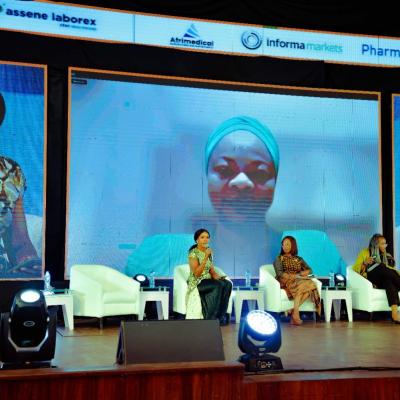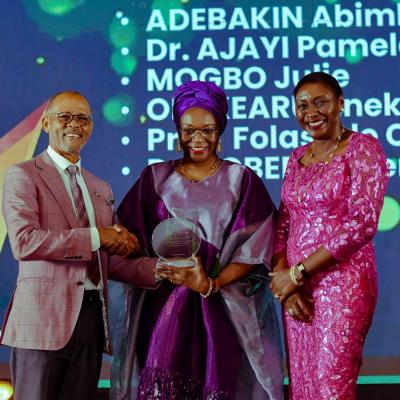Pfizer had also last week said it had developed a vaccine that was 90% effective against the virus. The pandemic is raging months after it broke out, with infections soaring past 54 million and claiming more than 1.3 million lives. “A vaccine will complement the other tools we have, not replace them. A vaccine on its own will not end the pandemic,” Ghebreyesus said. The WHO figures for last Saturday showed that 660,905 coronavirus cases were reported to the UN health agency, setting a new high watermark. That number, and the 645,410 registered on Friday, surpassed the previous daily record high of 614,013 recorded on November 7. The WHO boss said supplies of the vaccine would initially be restricted, with health workers, older people, and other at-risk populations (to) be prioritized. That will hopefully reduce the number of deaths and enable the health systems to cope.
He, however, warned That will still leave the virus with a lot of room to move. Surveillance will need to continue, people will still need to be tested, isolated, and cared for, contacts will still need to be traced… and individuals will still need to be cared for.” Meanwhile, US biotech firm, Moderna, according to Reuters, said yesterday that its experimental vaccine against COVID-19 was 94.5 percent effective, marking a second major breakthrough in the vaccine hunt. Moderna released early results from a clinical trial with more than 30,000 participants, after US pharmaceutical company, Pfizer and its German partner, BioNTech, last week said their vaccine was 90 percent effective.
Both vaccine frontrunners are based on a new platform called messenger RNA, which is faster to produce than traditional vaccines and effectively turn human cells into vaccine factories. This positive interim analysis from our Phase 3 study has given us the first clinical validation that our vaccine can prevent COVID-19 disease, including severe disease,” said Stephane Bancel, Moderna CEO.
The company plans to submit applications for emergency approval in the US and around the world within weeks and says it expects to have approximately 20 million doses ready to ship in the US by the end of the year. Global infections from COVID-19 have soared past 54 million with more than 1.3 million deaths since the virus emerged in China late last year. The Moderna vaccine, which was co-developed by the US National Institutes of Health, is given in two doses 28 days apart, and the preliminary results are based on 95 volunteers of the 30,000 who fell ill with COVID-19. Of the 95, 90 had been in the trial’s placebo group and five in the group that received the drug called mRNA-1273. ‘Tremendously exciting’ There were 11 people who fell severely ill, all of whom were in the placebo group. The vaccine was well tolerated, with the majority of side-effects classed as mild or moderate. After the first dose, about three percent of people had injection site pain classed as severe.
Among side-effects classed as severe after the second dose, about 10 percent had fatigue, nine percent had muscle pain, five percent had joint pain or headaches, four percent had other pain and two percent had redness at the injection site. These adverse events were short-lived, according to a statement. This news from Moderna is tremendously exciting and considerably boosts optimism that we will have a choice of good vaccines in the next few months,” said Peter Openshaw, a professor of experimental medicine at Imperial College London. Crucially, Moderna also announced that its vaccine can remain stable at standard refrigerator temperatures of 2 degrees Celsius to 8 degrees Celsius (36 degrees Fahrenheit to 46 degrees Fahrenheit) for 30 days.
The company added it could be kept in long-term storage at standard freezer temperatures of -20 degrees Celsius (-4 degrees Fahrenheit) for up to six months. Pfizer's vaccine, on the other hand, needs to be stored in deep-freezer conditions which could complicate supply chain logistics, particularly in less developed countries. It is not yet clear how long-lasting the protection will be from either the Moderna or Pfizer vaccines nor how well they work for the elderly, the age-group at the highest risk from COVID-19.
Source: The Vanguard

 The Director-General of World Health Organization, WHO, Tedros Adhanom Ghebreyesus, said yesterday that a vaccine would not by itself stop the coronavirus pandemic. Ghebreyesus stated this on a day US biotech firm, Moderna, announced that its experimental vaccine against COVID-19 was 94.5 percent effective, marking a second major breakthrough in the vaccine hunt. Pfizer had also last week said it had developed a vaccine that was 90% effective against the virus.
The Director-General of World Health Organization, WHO, Tedros Adhanom Ghebreyesus, said yesterday that a vaccine would not by itself stop the coronavirus pandemic. Ghebreyesus stated this on a day US biotech firm, Moderna, announced that its experimental vaccine against COVID-19 was 94.5 percent effective, marking a second major breakthrough in the vaccine hunt. Pfizer had also last week said it had developed a vaccine that was 90% effective against the virus. 







